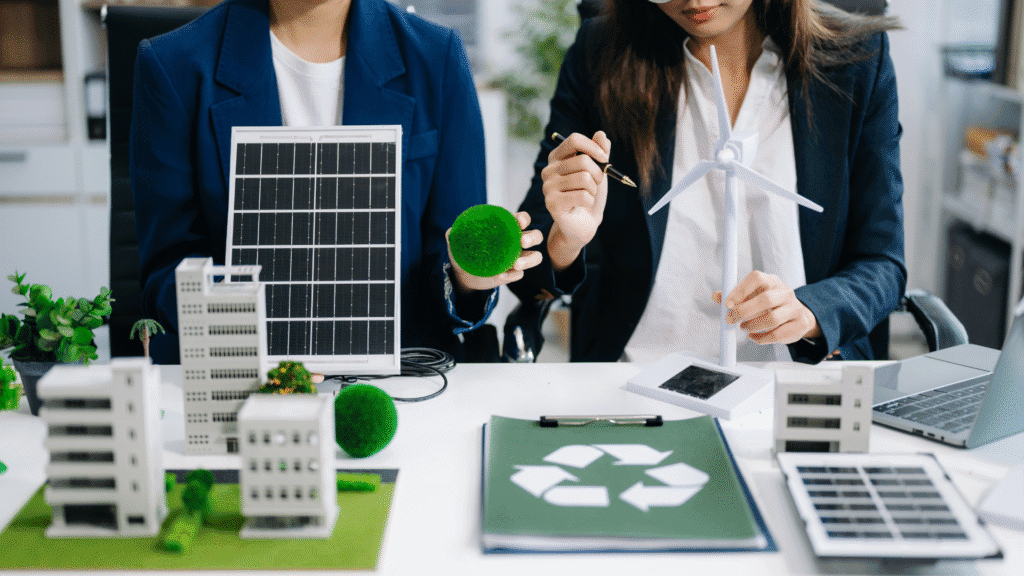As we step further into 2025, sustainability continues to dominate the global agenda.
Businesses, governments, and consumers are collectively driving efforts to combat climate change and build a more sustainable future.
Here are five key predictions shaping the sustainability landscape in 2025.
- Carbon Neutrality Takes Centre Stage
Carbon neutrality is no longer a lofty goal but a business necessity. As the world aligns with the UN’s 2050 net zero targets, businesses are under increasing pressure to not just measure but actively reduce their carbon footprints.
2025 will see significant advancements in carbon management strategies, including the widespread adoption of carbon accounting tools and frameworks like ISO 14068.
Governments and regulators will impose stricter requirements, encouraging organisations to transition from voluntary commitments to enforceable obligations. Companies that fail to prioritise carbon neutrality risk losing competitive advantage and consumer trust.
- Supply Chain Sustainability Becomes Non-Negotiable
The focus on sustainable supply chains will intensify in 2025. Organisations will increasingly evaluate their suppliers’ environmental, social, and governance (ESG) credentials to ensure alignment with sustainability goals.
Emerging technologies like blockchain will play a critical role in providing transparency and traceability across supply chains.
With tools to track carbon emissions, ethical sourcing, and waste management practices, businesses will strive to minimise Scope 3 emissions – the indirect emissions generated throughout their supply chains.
Companies that integrate sustainability into their procurement strategies will benefit from enhanced reputation and operational resilience while meeting growing stakeholder expectations.
- Circular Economy Initiatives Gain Momentum
2025 will witness a significant shift from linear to circular economic models, emphasising waste reduction, reuse, and recycling. The adoption of circular strategies will help businesses reduce resource dependency, lower costs, and minimise environmental impact.
Key industries like fashion, electronics, and manufacturing will lead the way in circular economy practices. Innovations in materials science and product design will make it easier to recycle or repurpose goods. Consumers, too, will play a critical role, with demand for eco-friendly products driving change.
Governments will likely introduce incentives and regulations to support circularity, including extended producer responsibility (EPR) schemes that hold manufacturers accountable for the lifecycle of their products.
- Digital Technology Accelerates Sustainability Efforts
Technological innovation will remain a powerful enabler of sustainability in 2025. Artificial intelligence (AI), Internet of Things (IoT), and data analytics will revolutionise how businesses monitor and manage their environmental impact.
Smart grids, powered by IoT, will optimise energy use in real-time, while AI-driven insights will identify inefficiencies and predict maintenance needs in renewable energy systems. Digital twins—virtual replicas of physical assets—will simulate the environmental impact of different strategies, enabling informed decision-making.
Furthermore, consumer-facing technologies like apps and dashboards will empower individuals to make sustainable lifestyle choices, bridging the gap between awareness and action.
- Green Finance Becomes Mainstream
In 2025, green finance will take centre stage as investors prioritise ESG criteria in their portfolios. Sustainable bonds, carbon credit markets, and green loans will become critical tools for funding climate action and sustainability projects.
Governments and financial institutions will create frameworks to regulate and encourage green investments. Businesses that align with ESG standards will find it easier to access capital, while those lagging behind may face financial penalties or limited funding opportunities.
This trend will extend to small and medium-sized enterprises (SMEs), with tailored financial products enabling them to adopt sustainable practices without overwhelming costs.
Looking Ahead: What This Means for Businesses
2025 will challenge organisations to adapt to a rapidly evolving sustainability landscape. The ability to anticipate and respond to these trends will be critical for maintaining competitiveness and resilience.
At TEST Consulting, we help businesses navigate the complexities of sustainability, offering expert guidance on carbon neutrality, supply chain optimisation, energy management, and compliance.
Whether it’s implementing ISO standards or integrating circular economy principles, our tailored solutions empower organisations to thrive in a low-carbon future.
By embracing these predictions and acting decisively, businesses can position themselves as sustainability leaders in 2025 and beyond. The time to act is now.
Ready to Take the Next Step?
Contact TEST Consulting today to explore how we can help your business stay ahead of the curve in this transformative era of sustainability.
Tel: 0113 467 7650
Email: info@test-consulting.co.uk
Related Articles
Looking for more insights? Check out these related posts that delve deeper into similar topics.



